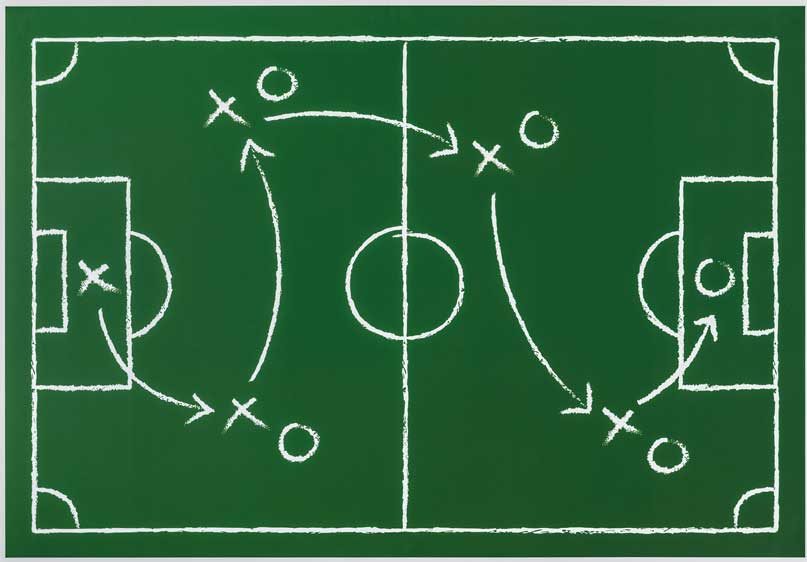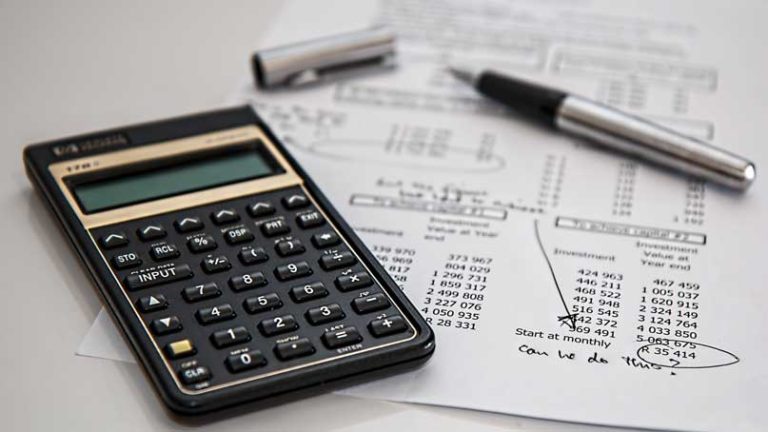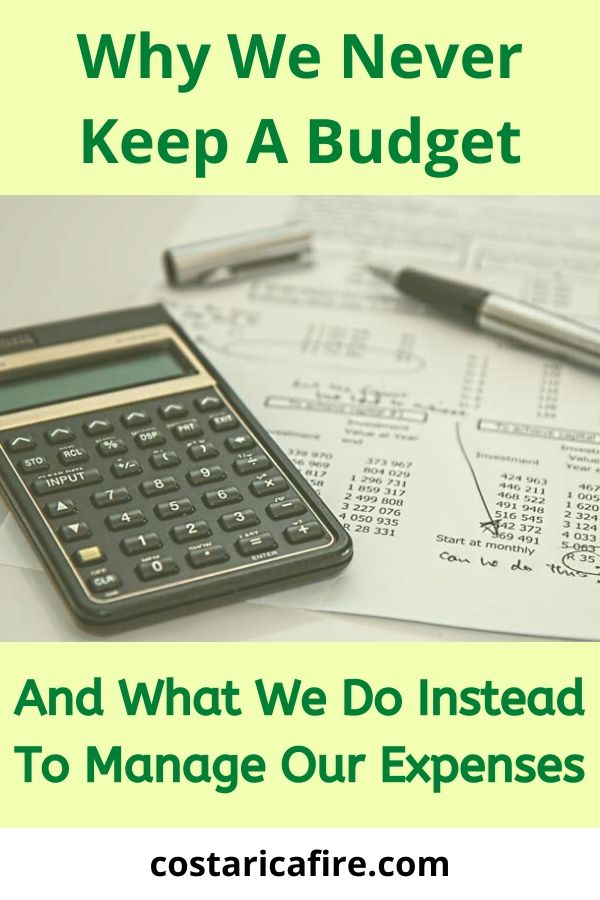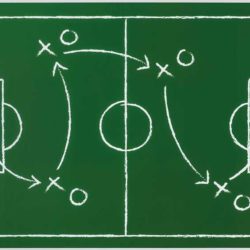I have never been a fan of budgets. I don’t like budgets because I already am risk averse and hard on myself. Budgeting plays into scarcity thinking — no, thank you, I can do that so well on my own!
It helps that I’m naturally attuned to looking for deals – e.g., waiting for sales, aware of discount policies – so I didn’t need a budget to save money. My big splurge is live entertainment, which can be reasonably priced with the right discounting strategies.
I have a TDF membership to get discounted theater tickets. I also keep my acting union membership active so I get invited to free movie screenings each year. If I want to see a movie outside of a screening, I know when and where I can get matinee pricing. Perhaps if my weakness were designer bags I would need to be more careful – I had a friend who spent thousands of dollars on an Hermes Birkin bag.
Luckily, Scott is also a natural saver. His big splurges are Mets tickets (or they used to be before we moved to Florida). At one point he was a season ticket holder, but then realized he could access all the games he wanted using ticket resellers like StubHub. Unfortunately for fans (but fortunately for our wallet) the Mets have been terrible more years than they’ve been competitive, so cheap tickets on the resale market have been plentiful.
While we don’t budget at all, we do track our expenses very diligently. We have Excel spreadsheets dating back over 10 years, which break down all of our expenses by category.
Tracking spending vs budgeting is one of the lessons in our free online course, Making FIRE Possible. It’s just one of the ways in which we will help you think differently about your possibilities for financial independence. Check it out today!
For any year, I know what we have spent on meals, entertainment, clothes, grocery, etc. I also track who does the spending – i.e., if it’s something for me or Scott individually, for one of our kids, for the entire family or for our businesses. I can also sort expenses by size so I can easily see the largest expenses (usually a business or travel expense, both of which we consider investments in ourselves).
Tracking beats budgeting

People in the financial independence space talk the importance of keeping a budget, but for a budget to be effective, you also have to track your actual spending. There is a relationship between budgeting and tracking, but it is the tracking part that is most crucial, and where the focus should be. With a focus on budgeting, it becomes too easy to simply make a budget and stop there. But you can track your spending, and make adjustments to your habits, without ever creating a budget.
Another reason I track our expenses like a hawk is that it is very easy to be wrong if you try to guess how much you spend. (This is true for time too, not just money, and I have kept a Time Diary for much longer than I have been tracking our spending.)
For example, we spend a lot more on food than I would have guessed. We take a lot of trips, so there’s a lot of dining out just related to our travel days. Seeing that pattern made me more mindful of cooking and eating in when we are home.
If you’d like to have a go at tracking your expenses, I’m a big fan of just using Excel. All of our credit card transactions can be downloaded into a CSV file which is compatible with Excel. I like Excel because I’m already familiar with it, so I don’t have to learn another program, like a specific budgeting software system. I also like Excel because you can easily add columns to tag your expenses in different ways. You can sort, filter, even create charts if you’d like (I never do that, but it’s an option!).
We do most of our transactions on credit cards so downloading our credit card activity captures most of our spending. We also pay bills using online banking, and we also use Excel to track our bank activity instead of a paper checkbook register. This keeps bank expenses in a separate spreadsheet from credit card expenses, but we can still see our total spend because our bank expenses include payments to our credit cards.
We rarely spend cash so we don’t track it, except for any expenses I need to capture to do our taxes, like business-related expenses or travel. We keep a separate spreadsheet just for travel expenses. Some of the same expenses appear in our credit card or cash tracking, but in our travel spreadsheet, we categorize the spending by trip taken. I started doing this in 2015 because we knew we wanted to travel more, and I wanted to see how much it would cost overall and how much different destinations cost.
We have spent over $116,000 on travel expenses since August 2015

This includes 3 trips to the Philippines, a two-and-a-half week trip to several cities in India, and trips to Greece, England, France, Ireland, multiple Costa Rica trips and many road trips. We have done a lot of travel in the last 4+ years.
That said, this is why tracking is so important. Both Scott and I underestimated the total by a lot – I was off by over 20% and Scott was off by 50%! We both don’t regret what we spent, but we now have a much better sense of what it will cost to maintain the same travel schedule. (Of course, this won’t be the case in the next year or more given the pandemic).
The other reason we need to track travel expenses pretty closely is because a good percentage of it is either business travel related to my business (for example, our trip to India was mostly business because I conducted a 2-day workshop in Bangalore), or related to our real estate (for example, our Costa Rica trips). Some of the business expenses are reimbursed by my clients, and other expenses can be deducted on our tax return at the end of the year.
Also, tracking our trip expenses so closely inspires ideas for how we might improve our spending in the future.
Transportation to and from the destination is by far the biggest expense. You can see a good example in our expense tracker from a recent one-month stay in Costa Rica. It’s also obvious in the spending during our recent trip to the Philippines.
If we want to rein in our travel spending, we should focus on transportation. Using points for flights is one option. Doing slow travel is another option, so that the upfront transportation cost is amortized across a longer stay. Bleisure trips, combining business and leisure, will also help since our business expenses minimize our income subject to tax.
Our variable expenses have been decreasing in the last few years

Despite the startling travel total we recorded, our expenses have actually started diminishing over the last few years. Travel is a big expense for us, and our earlier trips were for a family of four now down to two, or three if our youngest comes along. In prior years we also had a lot of extra trips to scout real estate, which we no longer need to do, as we are holding off on any big investments. Finally, we should see some additional cost of living savings this year onward with our move to Florida from New York.
The decrease in expenses comes at a good time since the pandemic is stress testing our income streams. Being grounded from travel gives us time to focus on our business and save us money. Sheltering in place also cuts down on entertainment and dining out. The savings will be a welcome addition to our liquidity and reserves.
With our spreadsheets already populated with data over time, we can easily review exactly how spending is changing, and make adjustments based on how we really behave. We don’t need to pull a budget out of thin air and hope to stick to it. Instead, our new spending plan will be informed by what we have already done in the past.
=================
How about you? Have I convinced you to join Team Tracking?



 We are Scott and Caroline, 50-somethings who spent the first 20+ years of our adult lives in New York City, working traditional careers and raising 2 kids. We left full-time work in our mid-40’s for location-independent, part-time consulting projects and real estate investing, in order to create a more flexible and travel-centric lifestyle.
We are Scott and Caroline, 50-somethings who spent the first 20+ years of our adult lives in New York City, working traditional careers and raising 2 kids. We left full-time work in our mid-40’s for location-independent, part-time consulting projects and real estate investing, in order to create a more flexible and travel-centric lifestyle.  Financial independence and early retirement is not something we originally focused on, but over time realized it was possible. Our free report,
Financial independence and early retirement is not something we originally focused on, but over time realized it was possible. Our free report, 








We never budgeted, we just spent what we wanted to. We were naturally frugal and my career really took off with raises, bonuses and promotions so money just piled up on its own. My wife became a stay at home mom and because she is a genius at saving money we never noticed the loss of her income. We didn’t really track spending until maybe the last two or three years I worked before retiring early. Then we did and saw we spent about the same every year and that we had much more invested than we needed to maintain the lifestyle. We do track spending now and it turns out we were correct, we still spend about the same amount. I wouldn’t recommend our plan for anyone who isn’t a frugal high earner though, it would be too loose for someone who was spendy or who did not have much excess income. Sounds like you guys are pros at living great lives that are fun and affordable.
Yes, you make an excellent point. Both my husband and I were knowledge workers, an while we weren’t high earners by NYC standards, we certainly work by national standards so we did benefit from that. Good catch!
I’m with you on not feeling like we need to budget in the traditional sense. It’s just a shorthand for “tracking”, like you’ve said. At least, that’s after many years of tracking… initially, I think we benefited from some basic budgeting when we were younger. Do you use anything like Mint or Personal Capital to track your expenses digitally? I saw you mentioned a decade of spreadsheets :-O
We just got through editing our annual “budget” review from 2019 and so this was top of mind. Thanks for sharing the perspective!
I don’t use Mint or Personal Capital. I don’t like having to learn new systems, and I know Excel so well that I haven’t found a need. For my business books, I feel like I am stretching the limits of my spreadsheets and probably would benefit from an accounting software but it hasn’t been a priority — always revenue first not bells and whistles. Besides it’s not like so much money is rolling in so many different places that I can’t take the 90 minutes each month or so to reconcile:)
I applaud you for your financial success in life but there is a reason why people with your financial status are a minority. Tracking is great if you are good with money, but most people are bad with money. The average American owes $100K in debt. Budgeting is a good tool for financially illiterate people to learn about personal finance. (I speak from experience) Your system sounds great, but most people live above their means and don’t keep track of their finances. It takes discipline to keep a budget, and if one can’t do that, they can’t achieve FIRE any time soon.
Hi Allen, agree that budgeting works for some. For me, whether it’s spending or eating (food tracking) or working (time tracking), I find that my budget (i.e., estimates of what I’d like to happen) don’t match what really happens. So it’s when I saw my historical behavior via tracking that real change has happened. But again, pick the strategy that works for you — I do know people who make budgets and actually stick to them.